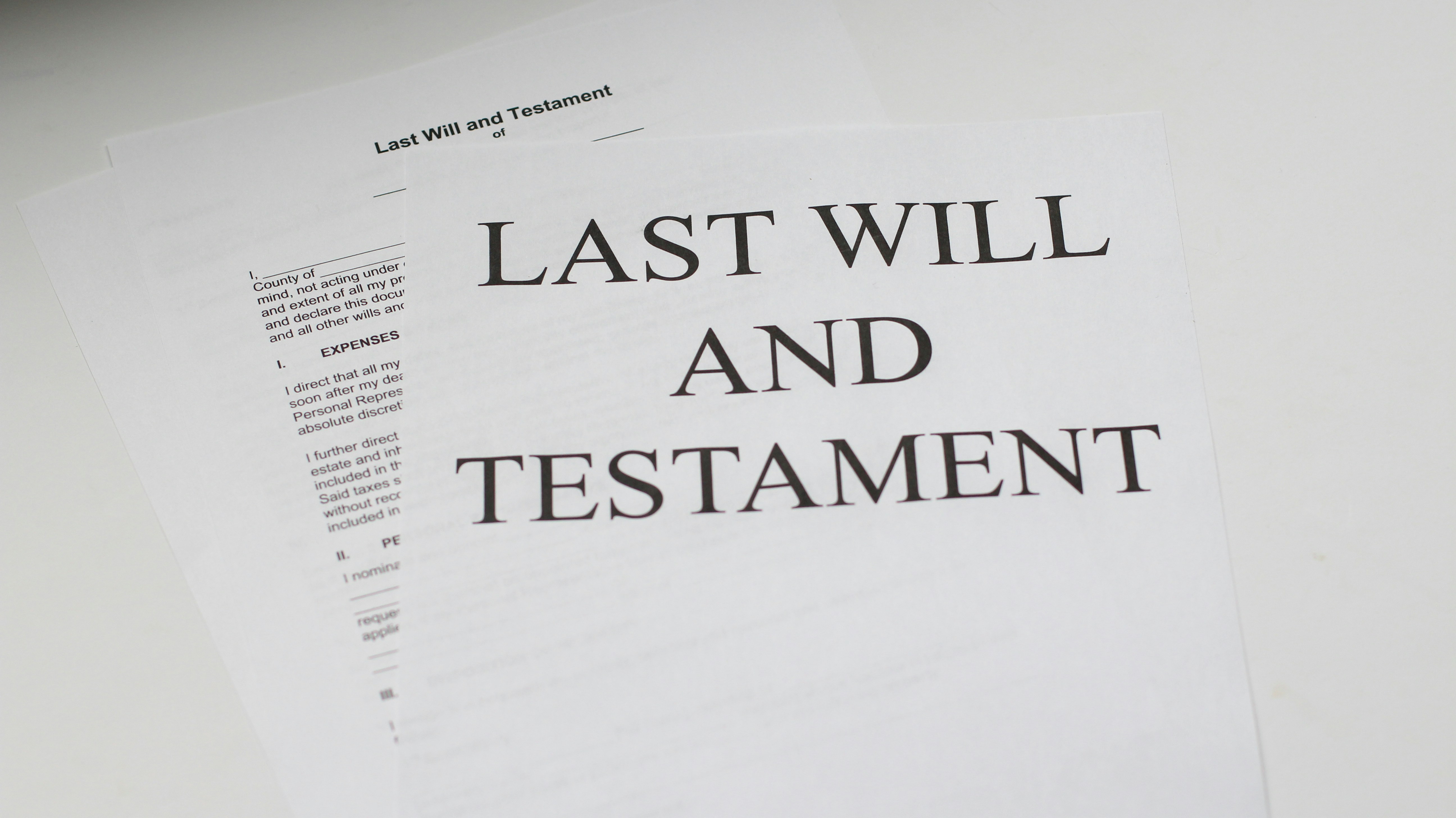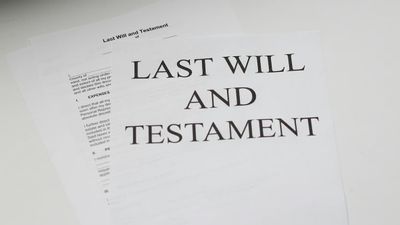Trustee for Will: What You Need to Know
Trusted Trustee Services in Northern California | Advocate Fiduciary

Discover the peace of mind that comes with partnering with Northern California's most trusted fiduciary firm. With over 50 years of combined experience, Advocate Fiduciary Services is dedicated to safeguarding your assets with integrity, professionalism, and leadership. Take the first step towards securing your financial future today. Contact us now to learn how we can serve you with excellence in private fiduciary services.
Choosing the right trustee for a will is a pivotal decision that can significantly impact the management and distribution of your estate. By carefully selecting someone who understands the testator's instructions and is familiar with the roles of both the trustee and the executor, you can help prevent a will contest if disputes arise among family members. This article delves into the essential aspects of appointing a trustee, highlighting the responsibilities and qualifications necessary for effective estate management. Whether you’re planning your estate or serving as the executor, this guide provides the insights needed to navigate the complexities of fiduciary duties—including those related to a living trust and the detailed trust document—with confidence and clarity, safeguarding your inheritance rights for future generations.
Table of Contents
- What Is the Function of a Trustee for a Will?
- What Are the Key Duties of a Trustee for a Will?
- How Is a Trustee Appointed for a Will?
- What Qualities Should You Look for in a Trustee for a Will?
- Can a Trustee for a Will Be Held Liable for Mistakes?
- Common Questions About Trustees for Wills
- Conclusion
What Is the Function of a Trustee for a Will?
Defining a Trustee's Role in Estate Management
The definition of trustee in a will involves managing estate assets under a testamentary trust, ensuring proper credit is given to all financial accounts, and collaborating closely with an estate planning attorney to uphold fiduciary responsibilities. This role requires the employment of effective management skills and adherence to legal guidelines, resulting in the following key actions:
- Overseeing the distribution of assets according to the will's guidelines and instructions, as well as ensuring that assets are properly distributed in a timely manner.
- Maintaining detailed accounting records and preparing accurate tax returns in coordination with financial professionals.
- Coordinating with an estate planning attorney and the designated executor to secure legal compliance and prevent a will contest.
Different Types of Trustees and Their Responsibilities
Different types of trustees may assume unique roles that serve as a vital backup in unforeseen situations. Some trustees are even selected specifically to act as a successor trustee if the primary trustee is unable to serve, ensuring that the trust document continues to be managed in accordance with the testator’s instructions. In addition, certain trustees may be tasked with managing a living trust while simultaneously addressing potential lawsuit matters. They are responsible for maintaining essential tasks such as:
- Managing and distributing assets
- Keeping precise financial records through rigorous accounting
- Ensuring accurate tax returns preparation and proper deductions
What Are the Key Duties of a Trustee for a Will?
The trustee plays a key role in managing and distributing assets, ensuring legal guidelines compliance, and maintaining open lines of communication with all beneficiaries to protect their inheritance rights.
Managing and Distributing Assets According to the Will
The trustee ensures the proper management of wealth and administration of estate assets as directed by the will. This often involves working in tandem with an experienced executor to review asset allocation guidelines and distribute assets equitably. Responsibilities include:
- Reviewing and interpreting asset allocation guidelines with the executor's input
- Maintaining organized financial and accounting records
- Coordinating duties with legal and financial professionals to finalize tax returns and manage estate accounting
Ensuring Compliance With Legal Requirements
To ensure all legal requirements are met, the trustee consults an estate planning lawyer to confirm that each bank account detail and piece of information adheres to current standards. This oversight includes making sure the trust document is up-to-date and that all accounting is accurate, thereby safeguarding both the estate and the beneficiaries through careful review:
- Reviewing bank account records and transactions with detailed accounting statements
- Validating financial information through consultations with an estate planning lawyer and ensuring that every element of the trust document aligns with the testator’s instructions
- Maintaining precise documentation of money management and related tax returns
Communicating With Beneficiaries
The trustee regularly updates the beneficiaries—whose inheritance rights must be protected—by explaining how assets such as life insurance policies, credit card settlements, 401(k) funds, and other estate components are managed after death. This communication helps address any concerns regarding debt or other financial obligations and ensures smooth estate administration. In many cases, the executor works closely with the trustee to provide joint clarity on the estate’s final distribution.
How Is a Trustee Appointed for a Will?
The Process of Selecting a Trustee
Choosing an appointed trustee involves a thorough evaluation of a candidate’s expertise in investment, finance, and health care management, along with a solid grounding in law. The process is often aligned with that used for choosing an executor, as both roles require a blend of practical experience and clear communication skills. This careful evaluation ensures that complex responsibilities are met professionally and that the trust document—detailing the testator's instructions—is followed meticulously.
Legal Requirements for Appointing a Trustee
Appointing a trustee demands that clear legal criteria be met to confirm the candidate’s capacity to manage a discretionary trust effectively. An attorney plays a key role in verifying that the selected trustee meets these standards, particularly by reviewing the trust document and ensuring that both trustee and executor responsibilities have been clearly defined. This protocol provides a secure framework for estate management and helps prevent disputes that might lead to a will contest.
What Qualities Should You Look for in a Trustee for a Will?
Assessing trustworthiness and reliability is crucial. It is equally important to verify the candidate’s legal and financial expertise. The ideal trustee should demonstrate skills in managing property, upholding liability and insurance standards, and, if necessary, coordinating with a guardian to bridge any gaps in fiduciary management.
Evaluating Trustworthiness and Reliability
A reliable trustee is expected to maintain clear records, ensure transparent communication, and navigate potential risks such as conflicts of interest—especially when the trustee also acts as one of the beneficiaries. Often, when impartiality is in doubt, a guardian or an independent executor may be brought in to review and bolster the estate's administration.
Assessing Legal and Financial Expertise
The trustee must possess strong legal and financial expertise to ensure proper estate management. Key qualifications include:
- A clear understanding of estate trustee versus executor responsibilities
- Proven experience in handling income and tax matters, including the accurate filing of tax returns in accordance with IRS guidelines
- Skill in managing real estate assets effectively, akin to the responsibilities commonly executed by an experienced executor
- A solid background that reinforces their role as an executor and an ability to efficiently manage a living trust
- Familiarity with comprehensive accounting practices, which mirror the demands faced by a seasoned executor
Moreover, a competent trustee should complement the work of a dedicated executor by ensuring seamless coordination during probate. Their role includes overseeing critical financial decisions, much like that expected of an executor, and in some instances, the executor may also serve as a successor trustee, adding an extra layer of oversight.

Can a Trustee for a Will Be Held Liable for Mistakes?
Understanding Trustee Liability and Legal Protections
A trustee who fails to manage the trust with due diligence may face liability in probate court if mistakes negatively impact the estate. Professionals in fiduciary services advise that the trustee should meticulously maintain records and secure legal counsel to protect against potential legal claims. If errors lead to a will contest initiated by aggrieved beneficiaries or even by an executor, the trustee's oversight may be scrutinized.
Situations That May Lead to Personal Liability
A trustee may incur personal liability if actions breach the duty of loyalty or if they neglect to manage assets within the parameters set by the trust document. For instance, negligence in handling a living trust or errors during probate procedures may prompt legal challenges. In matters involving a guardian overseeing Medicaid compliance, any mismanagement can intensify such liabilities, emphasizing the importance of precise accounting and careful adherence to legal standards.
Common Questions About Trustees for Wills
What Happens if a Trustee Cannot Fulfill Their Role?
When a trustee is unable to perform their duties, a replacement legal guardian or an alternate trustee is appointed to step in and uphold the estate's management responsibilities. The company managing estate matters reviews the situation carefully, and a clear plan of action is implemented to ensure the continued smooth operation of asset management, including the efficient distribution of assets. This ensures that the beneficiaries are not left in limbo and that the estate’s distribution aligns with both the will and the executor's guidance.
| Step | Action | Parties Involved |
|---|---|---|
| 1 | Evaluate trustee’s inability to serve | Estate management company |
| 2 | Assign a legal guardian or alternate trustee | Estate planning attorney, Beneficiary representatives |
| 3 | Implement transition plan with clear communication | Wealth management team |
Can a Trustee Be a Beneficiary?
The guidelines indicate that a trustee may serve as a beneficiary provided that potential conflicts are addressed through strict legal measures such as conservatorship protocols, power of attorney oversight, and robust estate management practices. When this dual role exists, it is vital to ensure that conflicts do not negatively affect the inheritance rights of other beneficiaries. A thorough legal review and detailed trust document are essential in such cases.
| Step | Action | Description |
|---|---|---|
| 1 | Conflict Evaluation | Review the roles to ensure that trustee and beneficiary functions do not overlap in a way that compromises fiduciary standards. |
| 2 | Safeguard Implementation | Adopt measures including conservatorship guidelines and power of attorney stipulations to protect the estate. |
| 3 | Legal Documentation | Record all decisions and steps taken to fulfill fiduciary responsibilities and maintain legal compliance. |
What Compensation Can a Trustee Receive?
A trustee’s compensation is determined based on legal standards and the provisions of the will, offering fees that reflect the essential tasks of asset management, tax returns preparation, and coordination with financial professionals. The compensation structure often mirrors the guidelines typically applied to an executor, accounting for the complexity of duties such as asset distribution and periodic accounting reviews.
Conclusion
Understanding a trustee’s role is essential for managing estate assets and fulfilling the will’s directives. Whether an estate is administered through a living trust or a traditional will, the roles of the trustee, executor, and guardian are interwoven to protect the testator and uphold inheritance rights. Close coordination with legal and financial professionals—ensuring that instructions in the trust document are followed and that meticulous accounting is performed—helps safeguard the estate and supports the equitable distribution of assets. By grasping these responsibilities, stakeholders are equipped to make informed decisions and maintain the integrity of fiduciary services.




